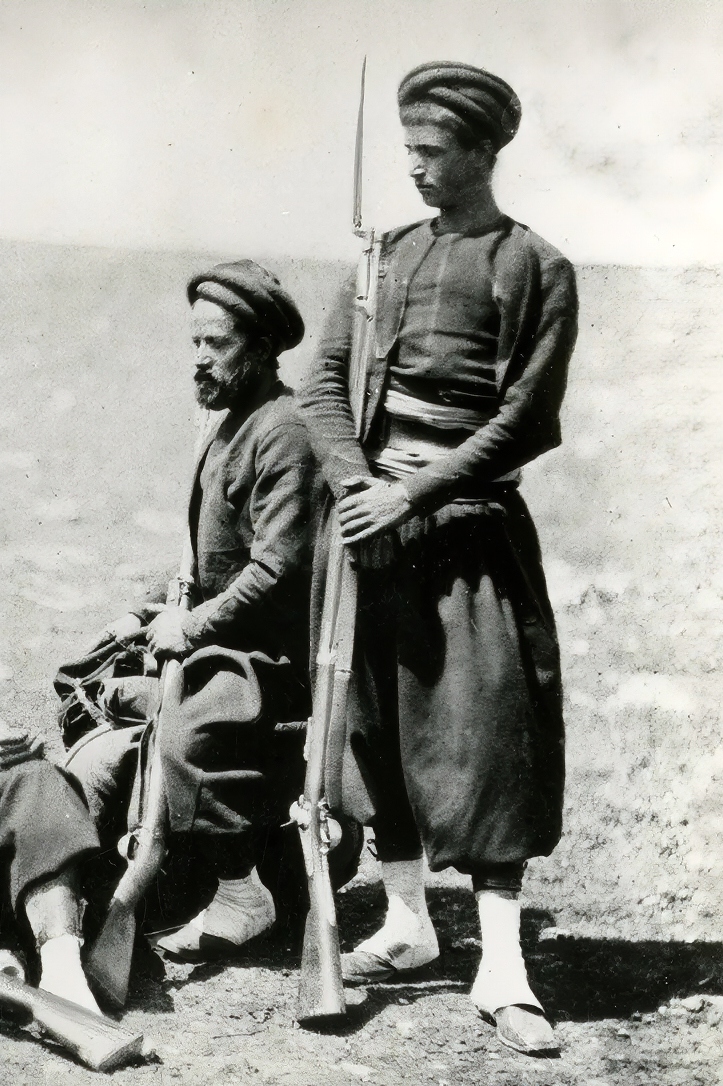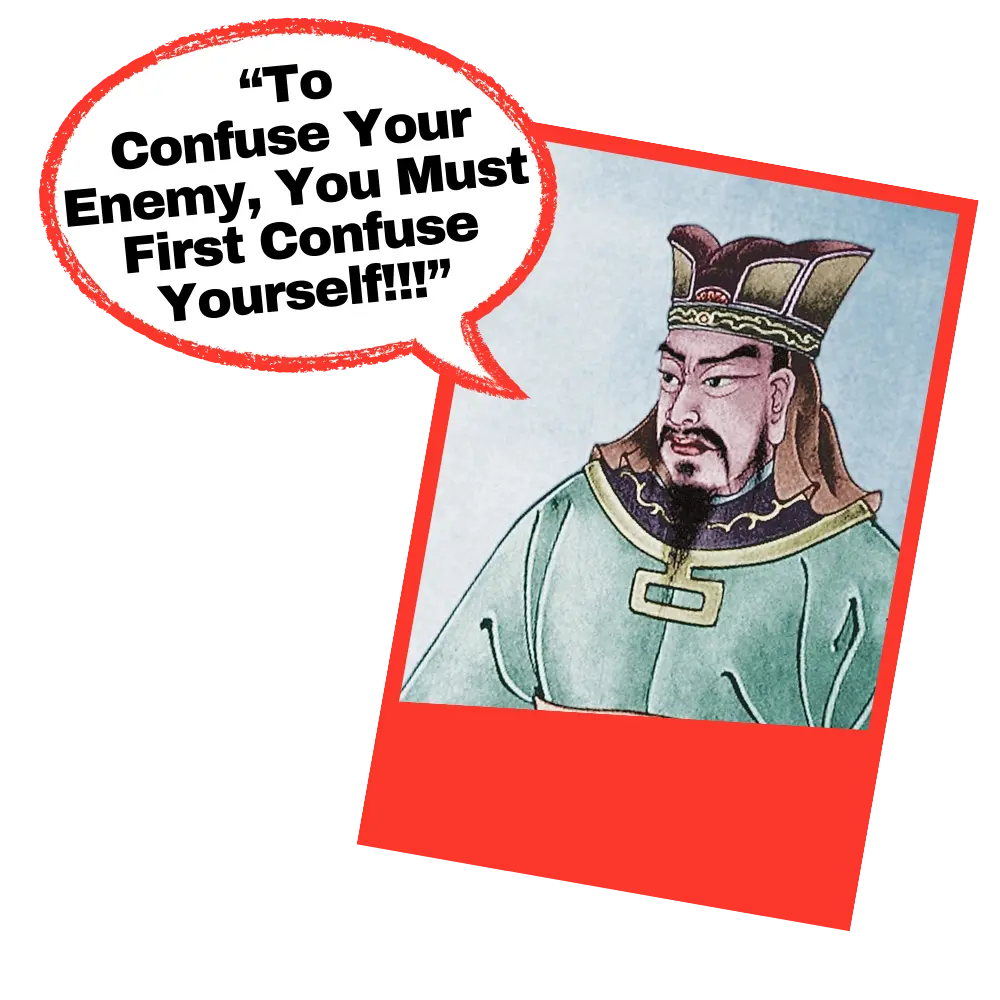Of all the Great Powers of Europe, Russia became the one whose relative power most went into decline after the end of the Napoleonic Wars in 1815.
This, however, was not to be fully evident until the Crimean War occurred during the mid-nineteenth century.
Had this been predicted at the time, it would have been met with disbelief – after all, Europe had just been overawed as the colossal Russian army marched westwards in 1814 against Napoleon.
Just as the British were unparalleled on sea, Russia dominated on land.
The emphasis against any territorial changes in Europe during the period (the Concert of Europe as this period became known) after this bloody war was therefore mostly underwritten by the 800,000-man Russian army.
Position of Pre-Eminence
After Emperor Alexander I gave way to his younger brother Nicholas I in 1825, Russia’s prestigious role in Europe would only continue growing.
This was illustrated when in 1848 Europe became convulsed in revolution; Russia’s position as the only other major nation apart from Britain in Europe who was ‘standing upright’ as Palmerston noted gave it the chance to increasingly exert its influence in Europe.
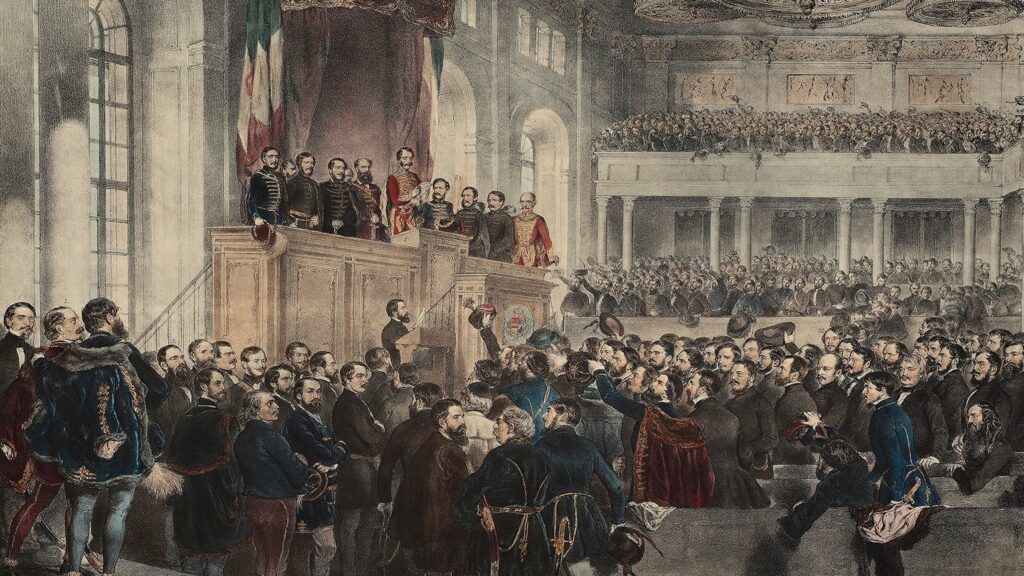
And their efforts were rewarded when Russia sent three armies to put down the unrest.
And when the Prussians tried to make changes to the German Federation in a bid to appease the ‘forces of change’, it was met with unrelenting pressure from Russia which sought to put a stop to these efforts.
Hence, for groups constituting the ‘forces of change’ in 1848, whether they be Marxists, liberals, or Hungarian nationalists, all saw the czarist regime as the main obstacle to their aims.
Economic Backwardness
However, despite the important role they played in foreign politics when it came to the technological and economic spheres, Russia was falling behind at an alarming pace relative to the other powers.
That is not to say, despite the hostility to modernization under Nicholas I, that there wasn’t some improvement.
The population exploded at a rate of 100%, growing from 51 million in 1816 to 100 million in 1880.
Iron and textile production increased, the number of factories reportedly grew five-fold, steam engines and modern machinery were imported from the West, and from the 1830s onwards a railway network began to emerge.
So, it is certainly undeniable that things were on the move, however, the problem was that the changes taking place were not happening anywhere near fast enough.
The rest of Europe, in comparison, was moving far faster which meant Russia was losing ground despite its efforts.
In the early nineteenth century, it easily possessed the largest GNP, yet this was only due to its exceedingly large population.
It is when these figures were adjusted to per capita income that the numbers begin to show just how far behind Russia was falling.
It is clear, hence, that Russia’s increase in total GNP was very much due to population growth (births and conquests in Turkestan) and not due to increased productivity.
Russia had always been behind the rest of Europe economically, but now it was only falling behind faster.
Compared to Europe’s leading nation in 1830, Britain, Russia had half its per capita income, and sixty years later, it only had a quarter.
Even its expansion in iron production was minuscule compared to Britain’s thirtyfold increase, which meant that along with the increase in other states’ iron production, Russia fell from being the chief producer and exporter of iron in the early part of the century to becoming increasingly dependent on iron imports from Europe.
And let’s put the increase in railroads into perspective.
By 1850, Russia had 500 miles of railroads; the US had 8,500 miles.
The steamship trade as well mainly involved in bringing in imports rather than sending out its own exports, and any new economic developments were frequently at the hands of foreign entrepreneurs who would put Russia into the subordinate position of being a supplier of primary goods for advanced economies.
The main obstacles in the way of modernization were a general lack of capital, low consumer demand due to a minuscule middle class, vast distances, and great variation of climates.
These facts along with possessing an autocratic govt with a heavy, suspicious hand made it very hard for any economic take-off to happen in Russia compared to anywhere else in Europe.
Military Strength
This economic backwardness did not, interestingly, show up for a while in its military.
After the previous war, and still, in the shadow of the French Revolution, each European nation was more concerned with the social reliability of the armed forces over any military reform.
The size of the Russian army therefore made it more impressive rather than the education levels of its officers or the sophistication of its weaponry.
What’s more, unlike the other Great Powers, Russia was militarily active and still expanding into the Caucasia and Turkestan which worried the British in India, which led to a frosting of Anglo-Russia relations.
Additionally, when the czar sent 400,000 troops to quell the Hungarian revolution mentioned earlier, he also claimed to be ready to put down a similar revolt taking place in Paris at the time.
Because of these reasons, those too fixated on its size were unable to realize that much of the Russian army was involved in ‘police’ work in Poland and Ukraine and in border patrolling.
And what was left was not very efficient – of the 11,000 casualties in the Hungarian campaign, all but 1,000 were due to disease because of the inefficiencies in their logistical and medical services.
So when the Crimean War (1853-56) occurred during the mid-1850s, the confirmation of Russia’s backwardness and ineffectiveness was all too shocking.
The Crimean War Kicks Off
In the north, allied operations in the Baltics (though never too serious) and a Swedish threat of an invasion tied down a whopping 200,000.
And the Austrian threat of intervention in the western regions of Russian Poland, Ukraine, and Bessarabia continued to worry Russia.
The initial fighting against the Ottomans down in Caucasia was already putting huge strains on the troops and on the supply systems.
France & Britain Join the War
So when the Anglo-French forces invaded the Crimea, the czarist forces were utterly incapable of containing such an incursion.
On sea as, well, the decently sized Russian navy was able to obliterate the pathetic Ottoman fleet at Sinope in November 1853, but when the Anglo-French fleets came, the roles were just as quickly reversed.
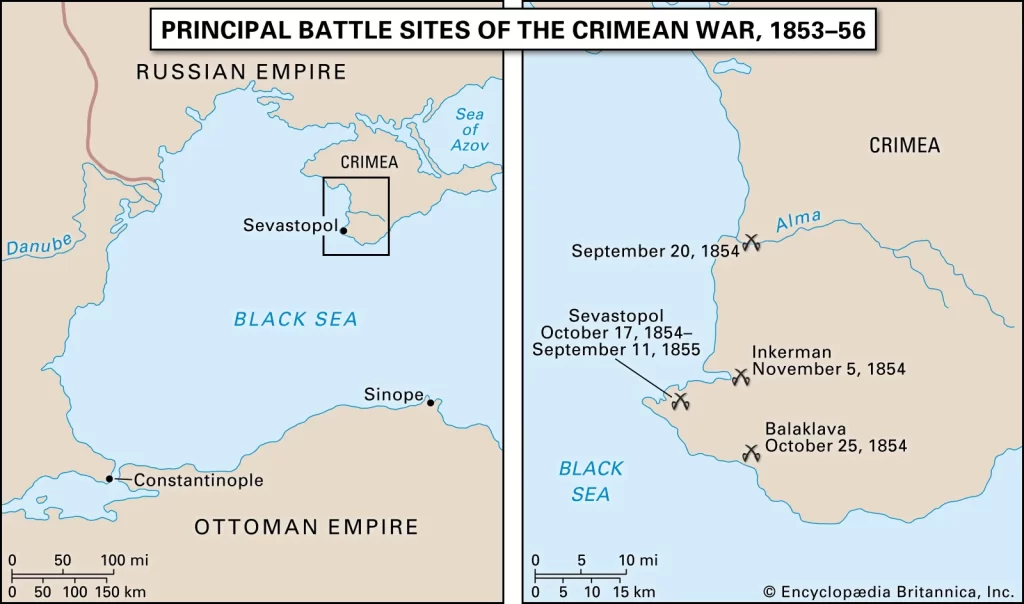
Many of the Russian ships were unseaworthy or used less than adequate materials and methods of firepower.
Above all, as mentioned before, Russia’s foes actually had the industrial capacity to build newer vessels which gave them a growing advantage as the war lengthened.
But the Russian army was even worse off.
The average infantryman fought well and under the inspired leadership of the likes of Admiral Nakhimov, remarkable feats like the defense of Sevastopol were pulled off.
But virtually everywhere else the army was woefully inadequate.
This was largely due to the huge technological disparities between the two sides.
Whilst the Russians used old-fashioned flintlock muskets which only had a range of 200 yards, the Allied troops were using rifles with a range of 1,000 yards.
Unsurprisingly, Russian casualties were far heavier.
Moreover, the Russian system as a whole was unable to respond to the challenges it faced.
The army leadership was riddled with incompetence and factionalism, and the czar’s govt also failed to come up with a clear grand strategy.
Middle-rank officers were too uneducated, and despite its huge population size, when the going got tough it was unable to call upon many reservists.
Even when they got new recruits through forcible conscription, not only they were untrained, but there were also insufficient numbers of officers to command them.
And that is not even considering the logistical and economic weakness that hampered the war effort.
Logistical Issues
Since there were no railways south of Moscow (!), horse-drawn supply wagons were used to cross hundreds of miles towards the front lines.
However, this was often close to impossible during autumn and the spring thaw due to the sea of mud that covered the paths they needed to cross.
And since the men and animals transporting the supplies themselves needed supplies, the logistical issues only continued to multiply.
And that is not even considering how long it took to transport troops to the from lines.
It took France and Britain three weeks to transport troops to the Crimean front lines by sea.
How long did it take the Russians to transport their troops?
It took three months!
And not only were their weapons outdated, there also simply not enough.
Even if they wanted to, they did not have the capacity to produce more, nor could they import as the British had instituted a blockade.
The Treasury Runs Dry
But this blockade would do one other thing – it blocked exports which generated much-needed cash for the Russian war effort.
Already in peacetime, the Russian military consumed 80% of the state’s revenue, but during the war, it doubled.
So there was no other way to finance the war other than through heavy borrowing.
It borrowed in Amsterdam, and it borrowed in Berlin, but soon the Russian rouble’s international value collapsed as confidence in its value sharply decreased.
So then the Russians turned to printing paper money, which predictably led to widespread inflation.
Wrecked financially and wrecked militarily, the Crown Council was warned that if the war went on, bankruptcy would become a very real risk.
There was nothing else left to do, negotiation was the only way to escape the catastrophe.
The Allies Feel the Strain
This is not to say the allies found the Crimean War easy, for indeed, many strains were placed on their war effort as well.
But for once France was actually doing better than the rest.
It benefited from being more industrialized than Russia but at the same time being less ‘un-militarized’ than Britain.
Its armed forces were well-trained and well-led, and its logistical and medical systems were the best any power during that time could produce.
Also, the French expeditionary force was both larger and better managed than any of the combatants and so made the most breakthroughs.
It is fair to say, therefore, that to some degree the nation regained its Napoleonic heritage during this campaign, much to the pleasure of its emperor, Napoleon III.
However, by the later stages of the campaign, even the French were beginning to reveal signs of strain.
Despite being a wealthy county, its government often had to compete with contractors for loan money from bankers.
Moreover, gold was being drained from the treasury due to the war, and poor harvests only sent up the prices and the inflation rate.
So, despite not at the time knowing the full war losses (100,000), public enthusiasm for the war began to evaporate especially after rumors began circulating that the British were prolonging the war for selfish reasons.
Its emperor too wanted the war to end – Russia had been chastised, France’s prestige had been regained, and it was important not to be distracted from matters closer to home in Italy and Germany.
The British, on the other hand, were far less satisfied with the outcome of the war.
At the beginning of the war, it had begun to dawn on them that the military had seen very little change from the time of the Napoleonic Wars four decades earlier.
Their strategies which had worked in the past were very ineffective for this war and their primitive medical systems were forced to handle huge outbreaks of cholera and dysentery.
And more embarrassingly still, just like the Russians, they simply did not have enough reserve troops to draw upon in wartime.
Russia, being authoritarian, could at least forcibly conscript soldiers; Britain, being more laissez-faire, could not.
This left it in the mortifying position of having to advertise for mercenaries to make up for the shortfall.
Nor did its powerful Royal Navy have a chance to secure victory against an enemy that had prudently withdrawn to its fortified harbors.
When the public heard about the notorious military incompetence (the charge of the Light Brigade serves as an example) and the high death toll due to disease, the public became outraged.
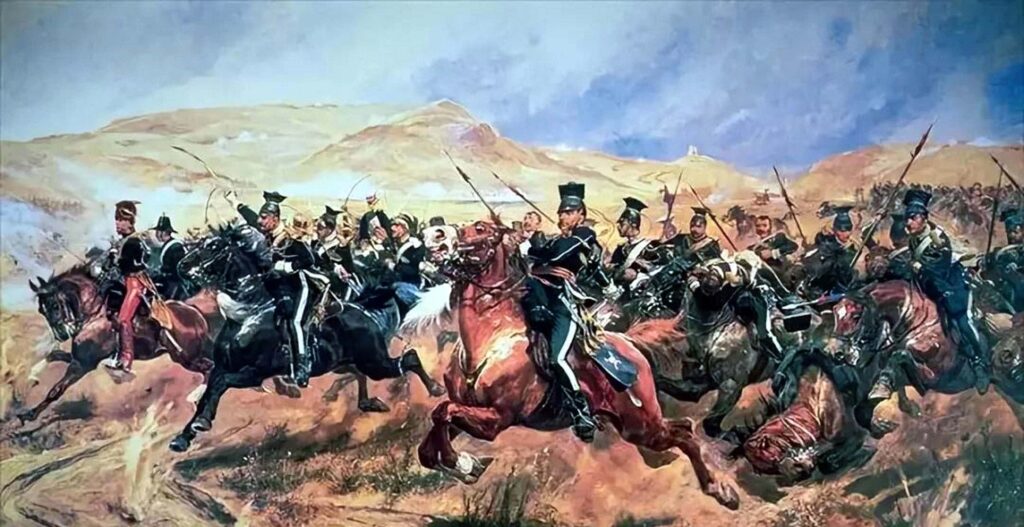
The controversy would actually lead to a change of government.
It seemed that those same qualities that might be seen as Britain’s strengths in some wars – low degree of government, small imperial army, heavy reliance on sea power, individual freedoms, and freedom of press – quite easily hampered their efforts in this campaign.
The British response to this test would be to pour huge amounts of money into a military that had previously been neglected (as the Americans would often do in the twentieth century).
But even though Britain had the necessary military spending, hundreds of steam-powered ships, along with a surplus of tents, blankets, and ammunition by 1855, and a belligerent prime minister advocating for the breakup of the Russian Empire; still, it could do little if France moved towards peace and Austria remained neutral.
So, feeling cheated of a proper victory, Britain complied and moved towards compromise.
This compromise would come amidst a general suspicion amongst other European powers over London’s aims and reliability, and a feeling of disgust among the public about getting involved with continental affairs.
As Britain moved towards the fringes of the European stage after 1856, it was Napoleon III’s France that would position itself as the main European player.
A Broken & Humiliated Nation
But if this war had irritated the British, this was still nothing compared to the shock Russia got from this war.
It forced them to realize in the most humiliating way possible they were not only weaker and poorer than their fellow Great Powers but that they lacked the mental resources and administrative efficiency in comparison as well.
This knowledge led to a whole series of reforms, notably the abolition of serfdom.
It led to a greater encouragement of railway building and industrialization, and an expansion in coal, iron, and steel production.
Indeed, at first sight, the economic data during this period was impressive enough, but important questions were still being asked.
Could this current rate of modernization keep pace with the increase in numbers of poor, uneducated peasants with the abolition of serfdom?
Could it match the explosive increase in production occurring all across other European states?
Could its reorganized army keep afoot with the ‘military revolution’ the Prussians were about to reveal to the world?
The answers to these questions, however, would disappointing; there is no denying that, looking back in hindsight, its position of pre-eminence would never be regained during this century.
For it was not until after the creation of the Soviet Union in 1922 that Russia would begin to realize its potential – but that’s a story for another day.
Footnotes & Further Reading
Kennedy, Paul M. The Rise and Fall of the Great Powers: Economic Change and Military Conflict from 1500-2000. London: William Collins, 2017.

